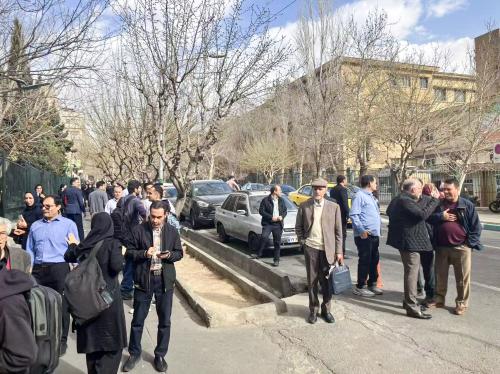By: Anish Parikh, Parikh Law Group, LLC What really happens in immigration court? The popular opinion program Last Week Tonight with John Oliver recently focused on U.S. immigration courts in its April 1, 2018 segment. Although the video is nearly twenty minutes long, there are three main takeaways: 1) People in immigration court have very few rights, 2) cases can drag on for years, and 3) whether or not someone has retained an attorney can directly impact the outcome of their case. Although some people think immigration court is similar to criminal or civil court, it is in fact very different. Criminal courts, like the Circuit Court of Cook County or the Federal District Court for the District of Northern Illinois, are part of the Judicial Branch and overseen by the Illinois Supreme Court and the Federal Supreme Court, respectively. In criminal court, defendants have a number of rights guaranteed to them by the Sixth Amendment to the U.S. Constitution. Those rights include the right to a lawyer, the right to a jury, and the right to a speedy trial. Immigration courts do not work in the same way. They are organized by the Department of Homeland Security and the Department of Justice, which are both part of the Executive Branch, not the Judicial branch. What does this mean? It means respondents (people facing deportation) do not have the right to a lawyer, do not have the right to a jury, and do not have the right to a speedy trial. Further, in accordance with judicial branch rules, every county in every state has a criminal court. However, not every state has an immigration court. Illinois has one court for the entire state, located in Chicago. Neither Indiana nor Wisconsin have immigration courts, which means that even if a respondent is released, they may have to travel long distances to meet their court date– or face an automatic order of deportation. Because there are so few immigration courts and no right to a speedy trial, cases almost always take years to resolve fully. In a criminal case, a defendant faces their first hearing (called an arraignment) within a few days of being arrested, if not the very next day. In immigration court, the first date listed on a Notice to Appear could be at any time—within the current month or into the next year. The average wait time for a hearing in Chicago is three years. Finally, respondents in immigration court have no right to a lawyer, even though they face deportation to their home country or a third country. Not even children in immigration court have the right to a lawyer, which means respondents as young as three or four years old must present their own cases in front of an immigration judge. Although there are some pro bono attorneys, recent estimates indicate that less than half of all respondents have a lawyer while in immigration court. The presence of a lawyer is often a major factor in the outcome of an immigration matter. It is inarguable that having a lawyer versed in immigration laws provides a huge boost to an immigration case. Although each case is different, it was shown that respondents with lawyers were four times more likely to get out of jail before their first hearing and at least five times more likely to seek relief that would lead to permanent resident status (a green card). Most importantly, respondents with attorneys are at least three times more likely to win their cases in immigration court.Although each case is different, retaining counsel for your immigration case can make the difference between winning or losing in immigration court. This holds true in criminal court and was an essential point behind the verdict in the landmark case Gideon v. Wainwright, which granted every criminal defendant the right to an attorney. Immigration court, however, still does not have that guarantee. Attorneys also provide immeasurable benefits in immigration matters outside of immigration court, such as adjustment of status, applications for visas, or for persons seeking U.S. citizenship. Immigration law is not easy, and many general-practice lawyers stay away from immigration law because of its complexities. Although the process is based on forms, most of the forms are multiple pages and have extensive requirements. The Immigration attorneys at PLG have years of experience helping their clients through immigration forms and USCIS interviews. Making mistakes on immigration forms, even if a genuine mistake, may lead to an unnecessary trip to immigration court. At PLG, we often stress the importance of retaining counsel well versed in immigration forms and procedures, and do our best to work with them on finding solutions that also work with their budgets.
Last Week’s Last Week Tonight: You Can’t Afford Not To Have An Immigration Lawyer
- by Rinku
- May 17, 2018 2 minutes

Immigration Lawyer











